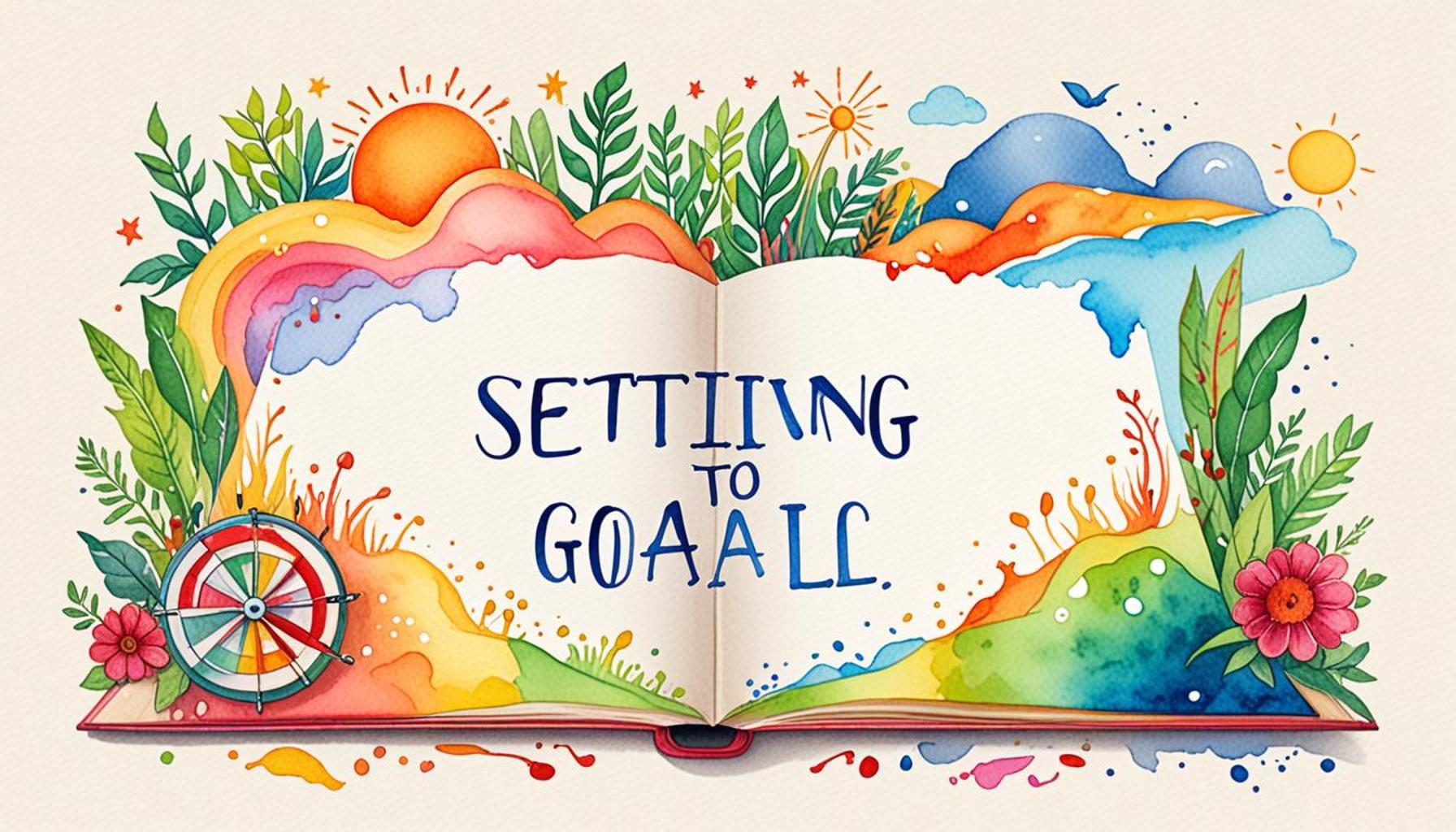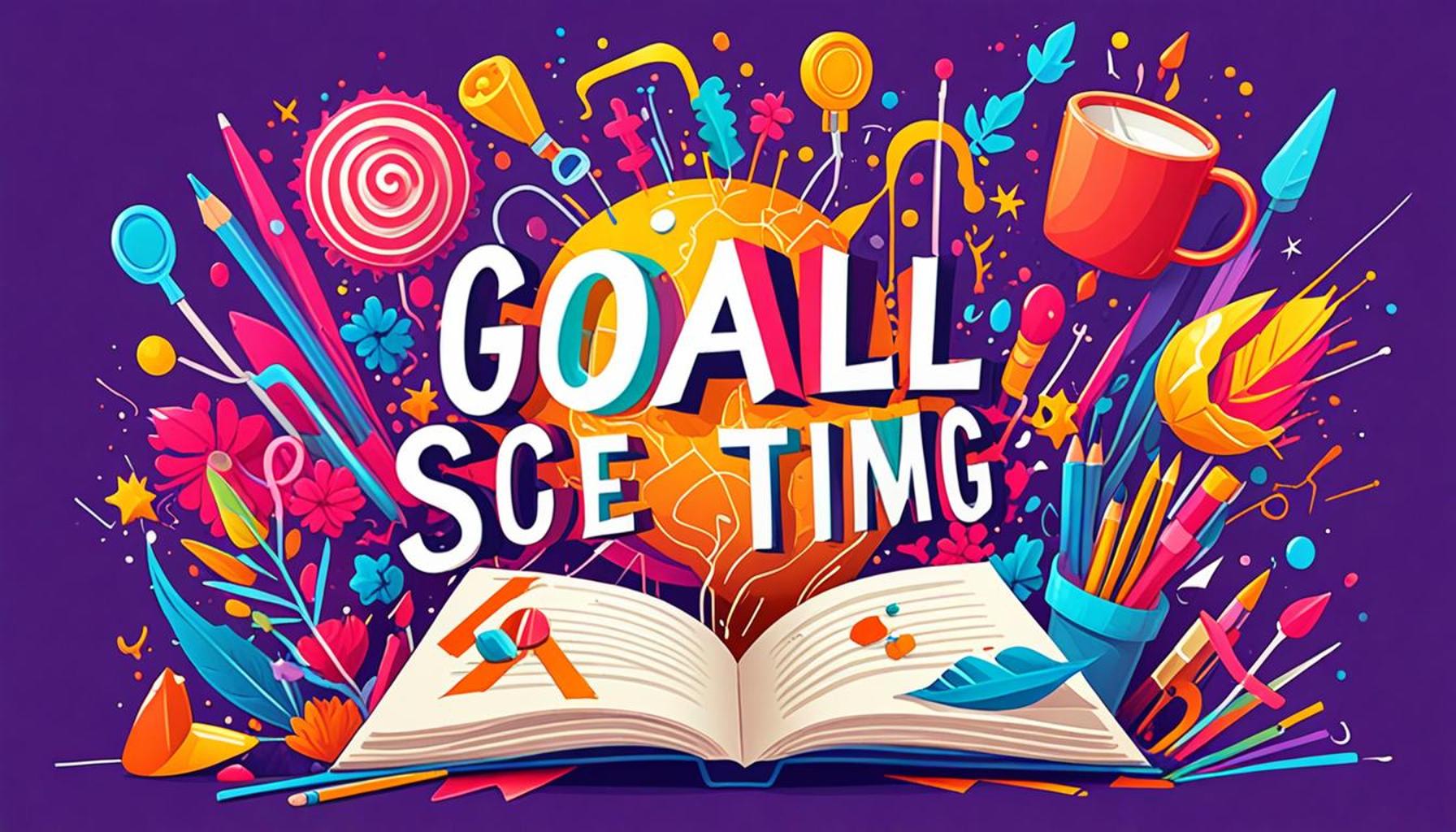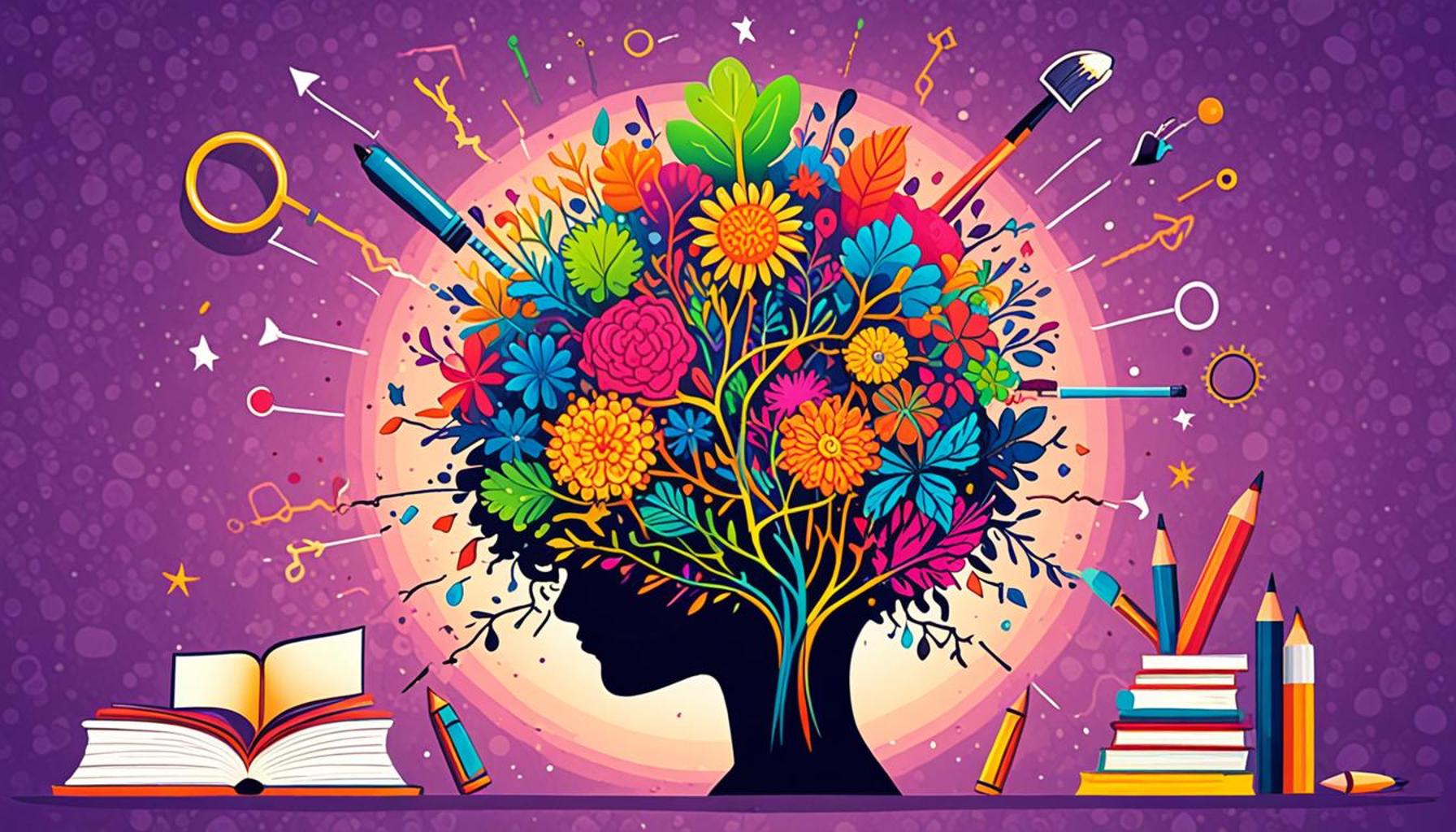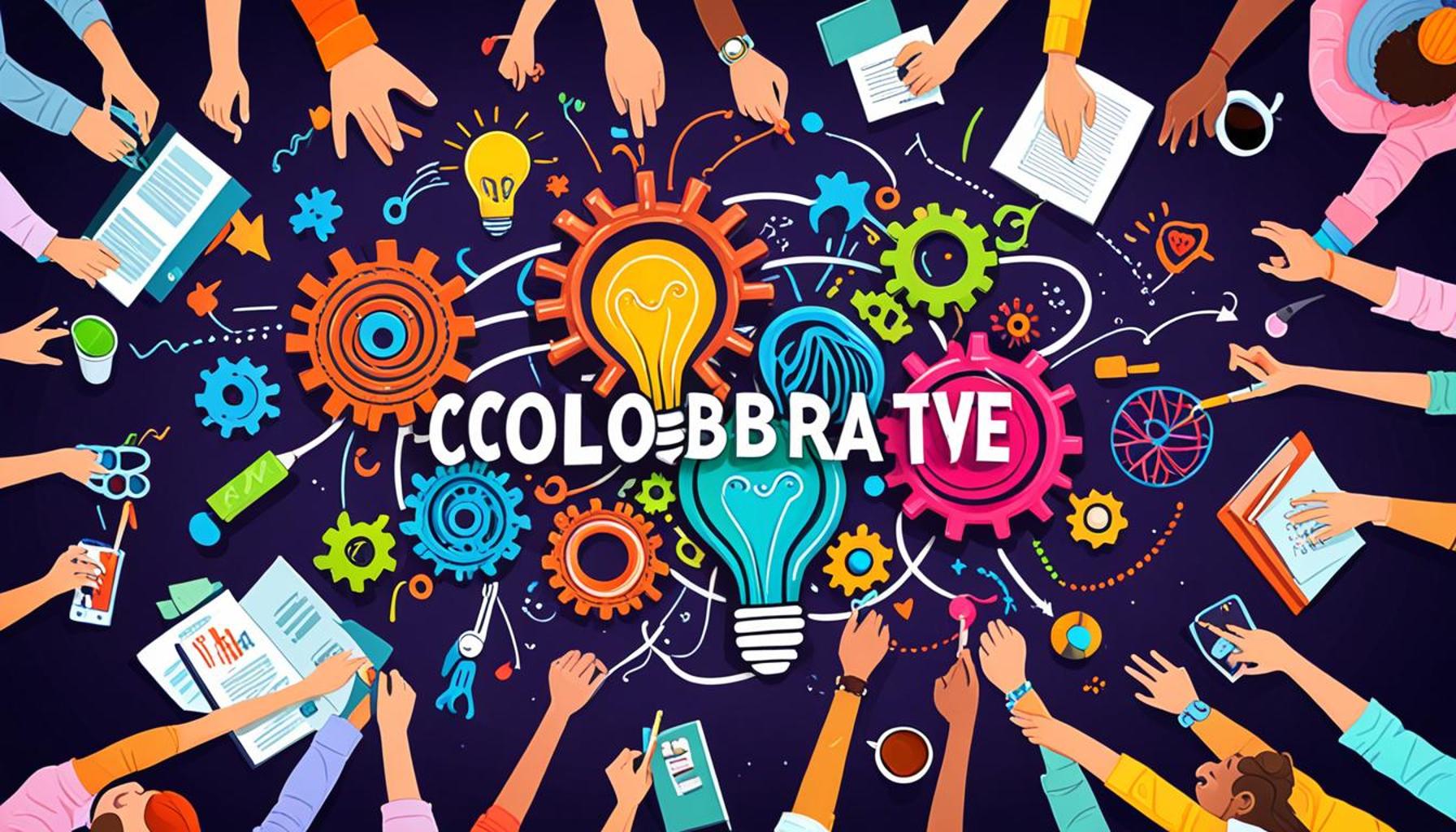Setting Short and Long-Term Goals: A Path to Resilience and Continuous Learning

The Importance of Goal Setting in Personal Development
In an era characterized by swift technological changes and evolving social landscapes, setting short and long-term goals has emerged as a fundamental aspect of personal development. Goal setting is not merely about dreaming but involves activating a series of processes that enable individuals to confront challenges while capitalizing on opportunities. This practice is crucial in building resilience and fostering a culture of continuous learning, which is imperative in today’s competitive environment.
Understanding the significance of goal setting can transform one’s approach to both personal and professional life. Here are some core reasons why it matters:
- Provides direction and clarity: Clearly defined goals act as a roadmap, helping individuals to focus their energy and resources toward specific achievements.
- Motivates individuals to push through adversity: When challenges arise, well-established goals can serve as a source of motivation, reminding individuals of what they are ultimately striving to achieve.
- Encourages lifelong learning and adaptation: Setting goals stimulates a habit of learning, enabling individuals to adapt their strategies and knowledge in a world that is perpetually changing.
In Nigeria, a country rich in diversity and opportunity, effective goal setting can lead to transformative outcomes. With its vibrant mix of cultures, varying economic situations, and differing educational backgrounds, individuals can harness the power of goal setting tailored to their unique circumstances. For instance, a young entrepreneur in Lagos seeking to expand their business could implement a SMART goal strategy. This involves establishing goals that are Specific (defining exactly what they want to achieve), Measurable (setting criteria to measure progress), Achievable (ensuring the goals are realistic given the resources), Relevant (aligning the goals with personal values), and Time-bound (setting deadlines for completion).
Additionally, the necessity for flexibility cannot be overstated. In the dynamic landscape of Nigeria, individuals must be prepared to revise their goals as conditions shift; whether due to market fluctuations or unforeseen personal circumstances, adapting one’s goals is essential for long-term success. Furthermore, establishing support systems plays a crucial role in the goal-setting process. Engaging with family, friends, or mentors can provide valuable insights and encouragement, which can keep one motivated and accountable.
As we continue to explore the art of goal setting, anticipate uncovering practical techniques and inspirational insights that empower you to carve out your distinct path. Embracing these strategies will not only enable you to establish clear targets but also help in building a resilient framework for ongoing personal development, ultimately leading to better opportunities and a fulfilling life.

SEE ALSO: Click here to read another article
Defining Short-Term and Long-Term Goals
Understanding the dichotomy between short-term and long-term goals is vital for effective personal development. Short-term goals are typically those objectives that can be achieved within a limited timeframe—be it days, weeks, or months. In contrast, long-term goals are more expansive, often requiring years of dedication and persistence. By aligning these two types of goals, individuals can create a comprehensive roadmap to success that adapts to changing circumstances.
Short-term goals serve as stepping stones that lead to the accomplishment of long-term aspirations. The immediacy of achieving a short-term objective fuels motivation and fosters a sense of accomplishment that can be leveraged to tackle more challenging, long-term aspirations. Take, for instance, a student in Nigeria preparing for university admission. A short-term goal could involve studying for a specific exam or completing a project by the end of the month, while the long-term goal may be successfully gaining admission into a prestigious institution.
In articulating effective goals, consider the following checklist:
- Define clear objectives: Write down what you wish to achieve in both the short and long term.
- Set realistic timelines: Recognize how long it will realistically take you to accomplish each goal.
- Regularly assess progress: Create checkpoints to evaluate your advancement towards those goals.
- Adjust as necessary: Remain flexible and willing to modify your goals based on new information or life changes.
Beyond simply outlining objectives, the process of goal setting encourages self-reflection and self-awareness. It drives individuals to assess their abilities, interests, and challenges they may face along the way. For instance, an aspiring writer in Nigeria might set a short-term goal of completing a weekly blog post while envisioning a long-term goal of publishing a novel within five years. This consistent review and adjustment of goals not only bolster resilience but also fosters a culture of continuous learning, enabling individuals to operate effectively in a rapidly evolving world.
Moreover, employing visual aids, such as vision boards or digital planners, can enhance goal visibility and commitment. Seeing your goals regularly reinforces your determination and keeps you focused. This approach becomes exceptionally pertinent in Nigeria, where diverse and vibrant cultures can offer unique perspectives on goal achievement. For example, leveraging local networks and communities can provide transformative insights, propelling individuals closer to their targets.
As we delve deeper into the intricacies of goal setting, it becomes evident that effectively navigating both short and long-term goals is not just about the destination; it’s also about enjoying the journey of personal growth, resilience, and lifelong learning.
Setting the Stage for Success
In the journey of personal and professional development, setting clear goals plays a pivotal role. Understanding the difference between short and long-term goals can significantly enhance your capacity for resilience and continuous learning. Short-term goals serve as stepping stones, creating a savvy roadmap towards achieving more extensive aspirations.
By establishing short-term objectives, you can break down larger challenges into manageable tasks, allowing for frequent assessments of progress. This iterative process not only fosters a sense of accomplishment but also encourages adaptability when unforeseen circumstances arise.
Building Resilience through Reflection
Reflecting on short-term achievements can lead to insights that inform long-term strategies. Each small victory consolidates your confidence, making it easier to tackle upcoming larger challenges. This reflective practice is a crucial aspect of continuous learning, as it helps individuals identify their strengths and areas for improvement.
| Category 1 | Category 2 |
|---|---|
| Short-Term Goals | Tangible milestones that provide immediate motivation and direction. |
| Long-Term Goals | Broad ambitions shaping your future aspirations, requiring sustained effort and commitment. |
Both types of goals are essential for charting a responsive and evolving pathway. They facilitate better time management and ensure sustained engagement with the learning process. As you navigate through your personal or professional journey, integrating these goal-setting strategies can lead to a more resilient and adaptable mindset.
In practice, goal-setting frameworks, such as SMART (Specific, Measurable, Achievable, Relevant, Time-bound), can provide structure that enhances both short and long-term planning. Not only do they clarify intentions, but they also create a metric for measuring progress. As the landscape of challenges continues to evolve, maintaining flexibility with these frameworks prepares individuals to pivot and learn effectively.
CHECK OUT: Click here to explore more
The Role of Resilience in Goal Setting
The journey of setting and achieving both short and long-term goals is often riddled with challenges that test one’s resilience. Resilience, defined as the ability to bounce back from setbacks, is not just an innate trait but a skill that can be cultivated through intentional practice. In Nigeria, where economic fluctuations and social circumstances can be unpredictable, developing resilience through goal setting becomes even more vital to navigate personal and professional landscapes.
For instance, when confronting a setback like failing to secure a job after numerous interviews, the individual must re-evaluate their short-term goals. They may decide to enhance their skills by enrolling in workshops or volunteer programs, which can lead to new opportunities. This process not only boosts immediate employability but also aligns with a longer-term goal of building a successful career. Such adaptive strategies serve as powerful reminders that setbacks are not necessarily failures, but rather, opportunities for growth and reorientation.
Continuous Learning: A Catalyst for Success
In tandem with resilience, the principle of continuous learning is essential in setting achievable goals. The vibrant tech scene in cities like Lagos provides a unique backdrop for professionals seeking to refine their skills continually. Online platforms such as Coursera or local training programs offer courses that equip individuals with the latest knowledge and expertise in their respective fields. This thirst for learning fuels both short-term excitement and long-term mastery.
For example, a young entrepreneur in Nigeria may set a short-term goal to master digital marketing in three months, which can directly impact their long-term aspiration of expanding their business nationwide. By acquiring new skills, they not only become more competitive but also lay a stronger foundation for achieving sustained success. Continuous learning acts as a springboard to transform short-term achievements into meaningful long-term advancements, helping individuals remain relevant in an ever-evolving marketplace.
The Impact of Community on Goal Achievement
Additionally, leveraging community resources can significantly enhance the goal-setting process. In Nigeria, communal ties often play a crucial role in personal development. Networking within one’s community can offer invaluable insights, mentorship, and support systems that amplify the chances of achieving goals. Creating a group of like-minded individuals who share similar aspirations can provide motivation and accountability, enabling members to celebrate short-term victories together and push each other towards long-term ambitions.
Local initiatives—such as business incubators or educational workshops—serve as excellent platforms for sharing knowledge and expertise. These resources not only facilitate learning but also encourage collaboration, ultimately fostering a collective resilience that benefits everyone involved.
As we explore the intertwined roles of resilience and continuous learning in the context of goal setting, it is clear that achieving short and long-term goals requires not just determination, but also a willingness to adapt and grow. The journey may be challenging, but the rewards are profound, paving the way for a fulfilling life rich in experiences and accomplishments.
SEE ALSO: Click here to read another article
Conclusion
In summation, the intricate dance between short and long-term goals serves as a robust framework for nurturing resilience and fostering a culture of continuous learning. As we have explored, resilience is not merely about enduring hardships; it is about cultivating an adaptable mindset that thrives on challenges, turning setbacks into stepping stones for success. In an ever-changing landscape like Nigeria, where unforeseen obstacles are commonplace, adopting a resilient approach can significantly enhance one’s path to personal and professional growth.
Moreover, the commitment to continuous learning cannot be overstated. Whether through local training programs or leveraging online resources, the pursuit of knowledge equips individuals with the skills essential for navigating today’s competitive market. By setting realistic short-term goals</strong, individuals can achieve immediate wins that contribute to their long-term aspirations, creating a cascading effect of motivation and achievement.
Key to this process is the supportive power of community. Engaging with others who share similar ambitions not only fosters accountability but also generates a collective energy that propels participants forward. The synergy created through collaborative efforts holds immense potential for shaping success stories within our society.
Ultimately, the journey of setting both short and long-term goals is a dynamic path paved with lessons, growth, and resilience. As individuals align their aspirations with actionable steps, they unlock the doors to a more fulfilling and purposeful life. The challenge lies not just in goal setting, but in committing to the journey of self-improvement and perpetual learning. Therefore, let us embrace this transformative journey, lighting the way for ourselves and others as we strive for greatness.


